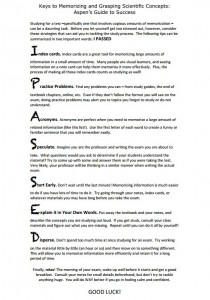I have a few friends from Scandinavia who speak perfect English due to one simple fact: movies and TV shows from the US and England are not dubbed. By watching TV they are able to learn vocabulary, conceptualize how to string sentences together, and pick up on cultural subtleties. We can do the same with Spanish!
While watching movies in Spanish is a very useful learning tool, movies are at most, only a few hours long. Telenovelas, on the other hand, are cinematic feats that last months to years. Contrary to popular belief, telenovelas aren’t parallels of soap operas. Rather, they are more concise and begin with a set storyline that plays out over a set course of time. The next time you decide to dive headfirst into watching a TV show, consider a telenovela instead of a show in English. Here are a few reasons why:
- They allow you to get to know characters and settings in much greater depth.
- Telenovelas are most often written in a more informal, colloquial register that is a nice contrast to the formal register often utilized in the classroom. This is especially useful for students preparing to study abroad. Telenovelas allow you to get a jump on regional slang.
- Little cultural details stand out much more dramatically. These details can be as small as the kinds of food and drink the characters consume and the kinds of events and occurrences that merit celebration, or as big as gender roles and the role of religion in daily life.
- They are hilarious.
Before your telenovela adventure begins, here are a few useful vocabulary words:
Capítulo = episode
Temporada = season
Not sure where to start? Here are a few ideas.
Botineras: An Argentine telenovela about the lives and romances of soccer players. There are secret identities, murders, romance, and soccer. What more could you want?
Links to episodes:
- http://botinerasblog.blogspot.com/2010/04/lista-de-capitulos-para-ver-online-de.html
- https://www.youtube.com/playlist?list=PL1N7BKTuLUGtz9PgQuNuHY-e_e1-t6FhY
Clase 406: A new teacher arrives at a Mexico City private school and has to find his place within the school. There is lots of drama.
Start watching on youtube: https://www.youtube.com/watch?v=VpXsJhG9GDs
My guilty pleasure: Soltera Otra Vez. Cristina Moreno, a hardworking woman in Santiago Chile, has terrible luck with men and dating. Spoiler alert: when one finally does propose via a ring in a champagne glass, she accidentally swallows the ring.
Watch season 1: http://www.13.cl/programa/soltera-otra-vez/videos/capitulos?page=6
And if none of these look inviting, check out Drama Fever!
Here is a link to all of their shows in Spanish:
http://www.dramafever.com/browse/genre/latino/popular


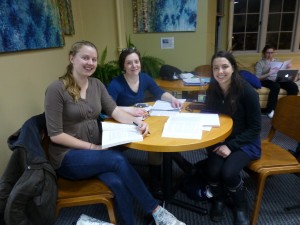
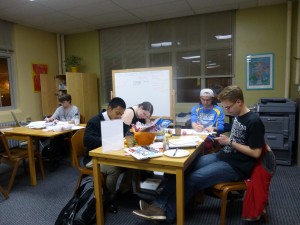
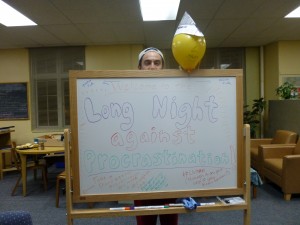
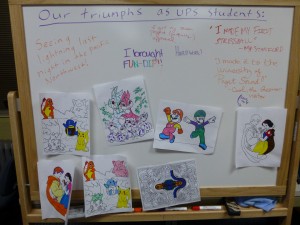

![image[1]](http://blogs.pugetsound.edu/cwlt/files/2014/02/image1-300x300.jpg)
